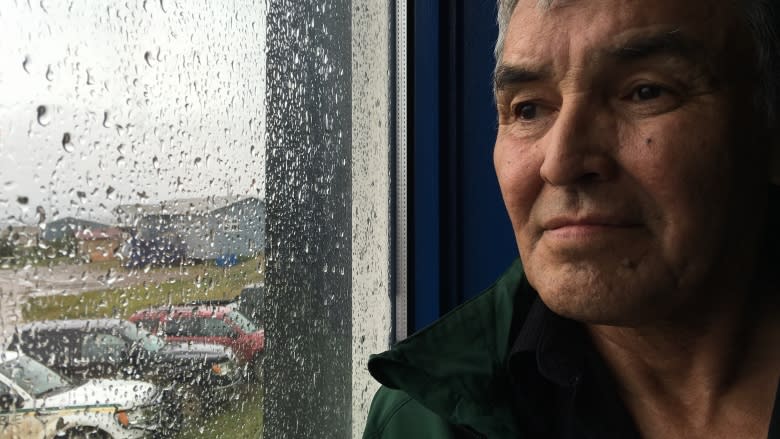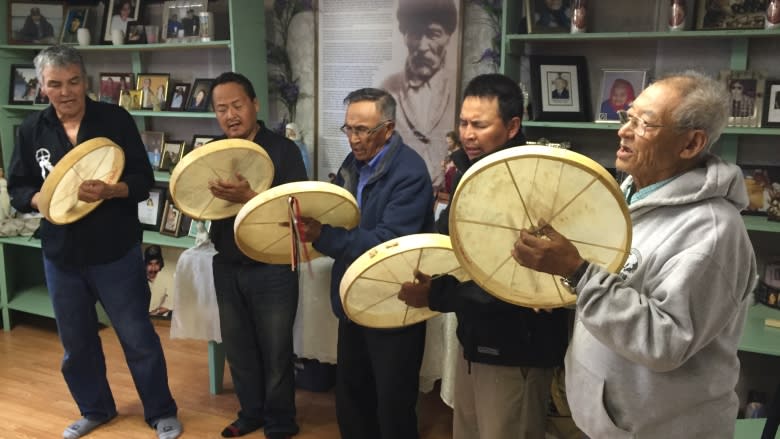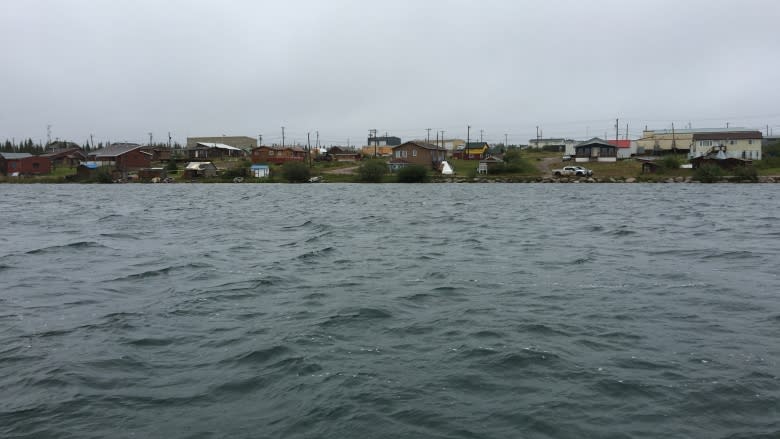Deline set to launch historic self-government, 20 years in the making
Nearly one hundred years ago, the Great Bear Lake community of Deline, Northwest Territories, was home to one of the region's most celebrated prophets.
Louie Ayah passed away in 1940, but his words still reverberate around the community of about 500 people, and are still remembered by many, including Morris Neyelle.
"'You will get powers,' he said. And he raised his hand over his head as high as he could reach up," says Neyelle.
"He said: 'that's how far you will rise.' People from the surrounding community and the rest of the world will look at you, and they will come."
Described as a "map to the future" by Neyelle, Ayah's words have indirectly led to September 1, 2016: the day that Deline will become the Northwest Territories' first self-governed community — and the first self-governed community in Canada to include both Indigenous and non-Indigenous people.
'Who they are, what colour they are, don't look at it that way'
The newly elected Deline Got'ine Government is the result of over a decade of negotiations between the local Deline First Nation and Deline Land Corporation, the Government of the Northwest Territories, and the federal government.
Though the community is largely made up of Dene members of the Deline First Nation, all residents who live in the community — members of the First Nation or not — will fall under the jurisdiction of the new government. They'll receive social programs and services, and will be able to participate in and vote in elections, though some positions, such as chief, will be reserved for First Nation members.
Neyelle, himself an elected councillor, says the unique approach to Indigenous self-government is reflected in the community's teachings.
"All living human beings are equal, regardless of where they come from," he said. "Who they are, what colour they are, don't look at it that way."
Those words ring true to Greg Wasserman, who has lived in Deline since 1981. On Thursday, Wasserman will become one of the first non-Indigenous people in Canada to live under Indigenous community self government.
"All I care about is they have the right to look after what they need," he said. "Because sometimes, the federal government... they don't know what the community really needs."
Over 20 years in the making
Deline has been working towards self-government since 1995 — two decades that chief negotiator Danny Gaudet says were not without complications. Band members were not all in agreement to pursue public self-government, and many models, including those where only First Nations members would fall under the new government, were considered.
But, says Gaudet, the decision was ultimately reached based on the elders' predictions.
"Elders believe people are going to come North for resources," he said. "If we develop a government only for ourselves, we will be overpopulated and overtaken. Their belief is that we need to govern not only ourselves, but anyone who lives among us."
Negotiations with territorial and federal governments culminated in June of 2015, when Deline's self-government act was passed in the Canadian Senate. Final approval led to celebrations, including a drum dance in the Senate foyer.
But the community's work wasn't done.
Once the agreement is signed on September 1, Deline will have jurisdiction over community affairs and local services, which include education, health services, social housing, and land use planning, among others.
The new government won't be set to take over all these portfolios immediately, instead progressively assuming more responsibility as it builds capacity and infrastructure.
"We've got a lot of work ahead of us," said Gaudet, who pointed out some priorities of the new government, including strengthening the education system (currently, most Deline students can't take enough courses to qualify to get into colleges), and simplifying adoption processes.
Over time, Gaudet explained, the Deline Got'ine government will develop rules, programs and services for the community, and the territorial and federal governments will help work to reach those goals.
"They moved us to a dependence state, and now you're going to move us out of it," he said. "You [will] talk to them like you are talking to another premier, or to another province. The relationship with Deline has to change. You can't force upon them what they don't want."
'We're going to be watching'
Deline's grand experiment will be watched closely by Indigenous communities across Canada, including Colville Lake, Northwest Territories, which hopes to be self-governing within four years.
"They kind of blaze the trail for us," said Wilfred Kochon, the chief of Colville Lake. "We always believe First Nations can do anything they put their mind to.
"We are going to be looking at their agreements and powers. If it suits us, we're going to grab it."
For now, though, Deline stands alone, reflecting the words of Louis Ayah in their words, their action, and, finally, their government.
"I want my laws to be who I am," said Neyelle. "To be a Dene person from here.
"We are different. That is what kept us alive for thousands of years."




